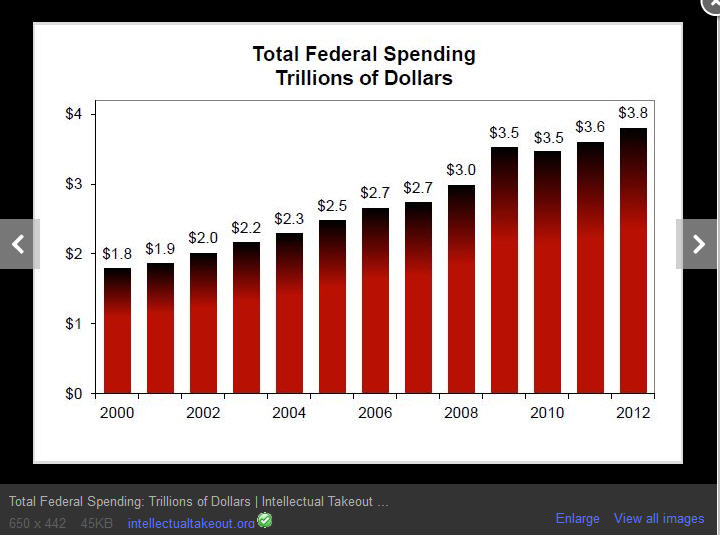It’s been more than 1,000 days since the Senate fulfilled its legal obligation to pass a budget. The Democrat talking points say that a budget is unnecessary because of the spending agreement reached last year. Well, anyone who runs a house knows that one reason to have a budget is that it helps keep spending under control. This concept also applies to the government.
John Hinderaker at Power Line posted an article yesterday on the current budget games being played by Congress.
The article reports:
Now, with no fanfare and no press coverage, the Democrats are attempting to negate–effectively, to repeal–the Budget Control Act by adopting spending bills that exceed its limits. Harry Reid and his Senate confederates have offered a bill to increase spending on the Post Office, S. 1789. The bill has been scored by the Congressional Budget Office as increasing the federal deficit by $34 billion, and no provision has been made to recoup that money somewhere else in the budget. (Of course, we don’t have a budget because the Democrats in the Senate won’t pass one. But spending could still be cut somewhere else.)
The article includes a rather lengthy statement by Senator Jeff Sessions that is worth reading. This is a portion of that statement:
Under Senate rules, no committee can bring a bill to the floor that spends even one penny more than is already going to be spent under current law, or increases the deficit more than it will increase under current law.
In other words, the spending and debt under the postal bill violates the debt limit agreement reached just last summer. In August, we agreed to modest, though insufficient, savings—in fact, discretionary spending will still increase $7 billion this year—and now the Senate is already planning to spend more than we agreed.
This is particularly odd since the President and the Senate Majority Leader have accused the House of breaking the budget agreement by trying to save extra money for taxpayers. This argument, of course, is not sound: The debt deal established basic spending caps—the maximum you can spend on discretionary accounts. Not one word in that law prevents you from doing your duty to try and save more money. Not one word in that law requires you to max out the cap. This is not a matter of interpretation: caps are the maximum, not the minimum, you can spend.
Almost everybody recognizes that deal was insufficient and the lawmakers trying to find more savings are doing their jobs and meeting their obligations.
Only in Washington does spending underneath a cap get you accused of breaking a deal while spending more than an agreement means people just look the other way. The Majority Leader and the Budget Committee Chairman are proud of the Budget Control Act, but where are they when it comes to making sure even these modest savings are enforced?
…
If this new spending is necessary, then isn’t it worth cutting spending somewhere else to pay for it? Do we really have to break our spending agreement before the ink is dry on it? At a time when we’re facing next year our fourth straight deficit in excess of a trillion dollars?
Washington is in a state of financial chaos. We are in denial. The Government Services Administration is throwing lavish parties in Las Vegas. The Government Accountability Office has identified $400 billion—$400 billion—being spent every year on waste, inefficiency, and duplication. Far worse, the Senate’s Democrat majority has failed to produce a budget plan in calendar years 2010, 2011, and now 2012. In fact, this Sunday, April 29th, marks exactly three years since the last time the Senate passed a budget.
…[N]ow, because the Senate can’t say no, and because the President refuses to exercise managerial discipline, we are set to spend another $34 billion in borrowed money.
The White House warns that Republicans want to cut too much spending. But the American people know the truth. And the truth is that we have never spent more money, more recklessly and with less accountability, than we are spending today.
This is a decisive moment. The point of order I will raise is not a mere formality. It is a crucial vote to see if the Senate will keep the agreement it made with the American people just last summer to reduce spending.
I am not optimistic about being able to change the uncontrolled spending of the current Congress. There are restraining forces (people who were elected in 2010), but there are not enough of them to be effective. Unless we elect people in November who respect the taxpayers’ money, we can expect our country to go bankrupt. We need to vote carefully this year.



